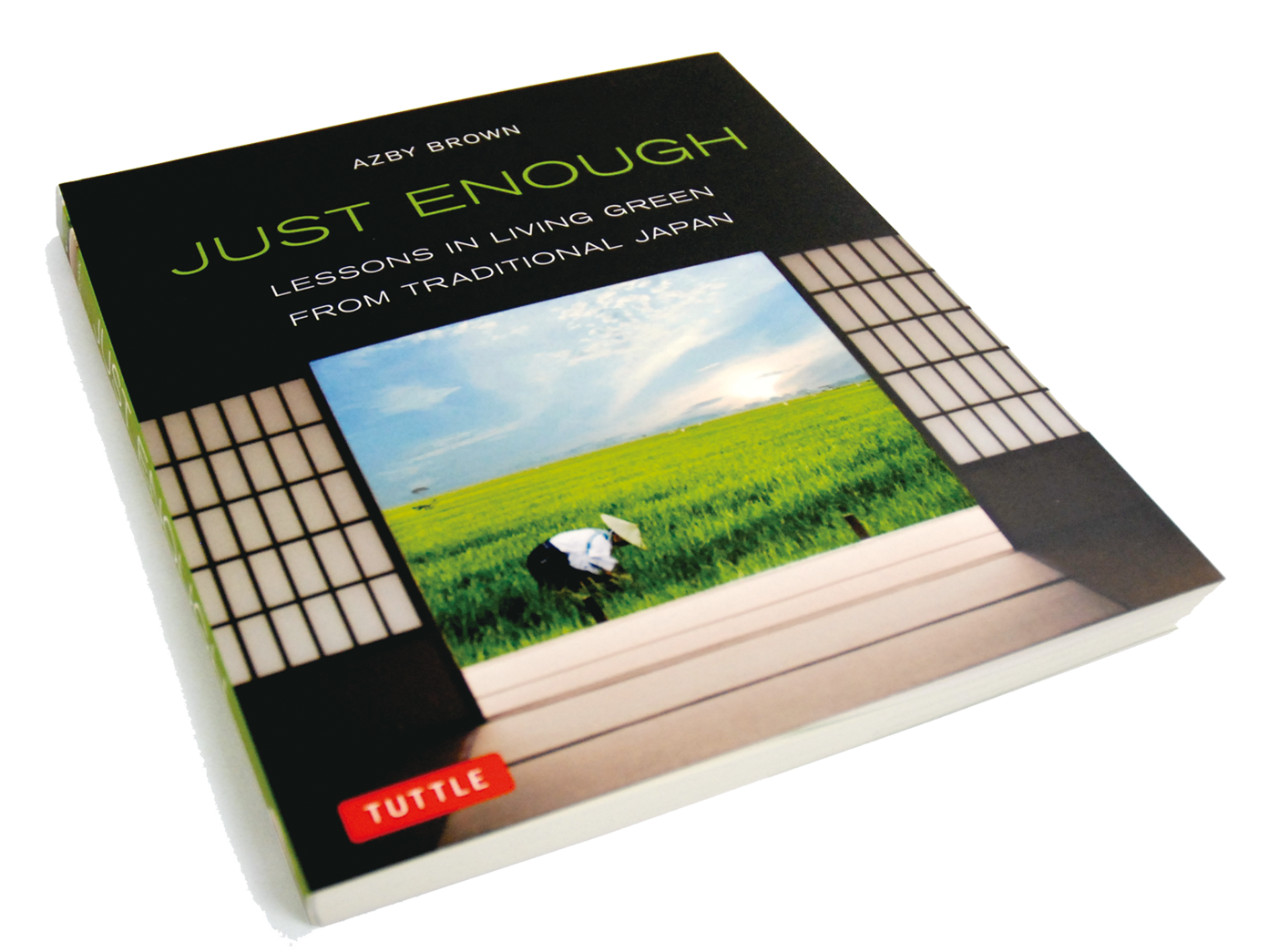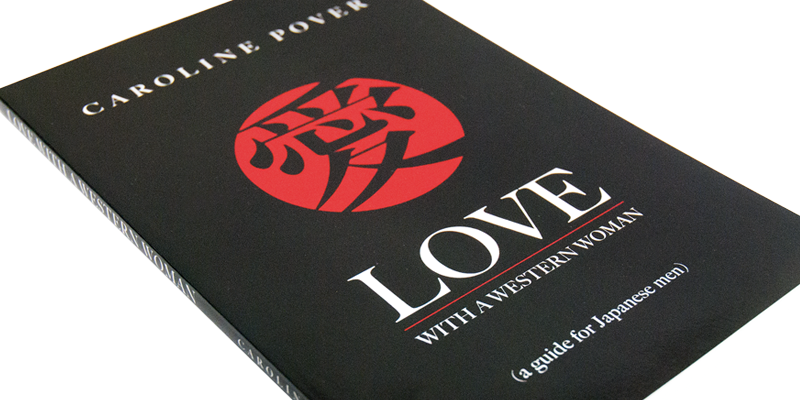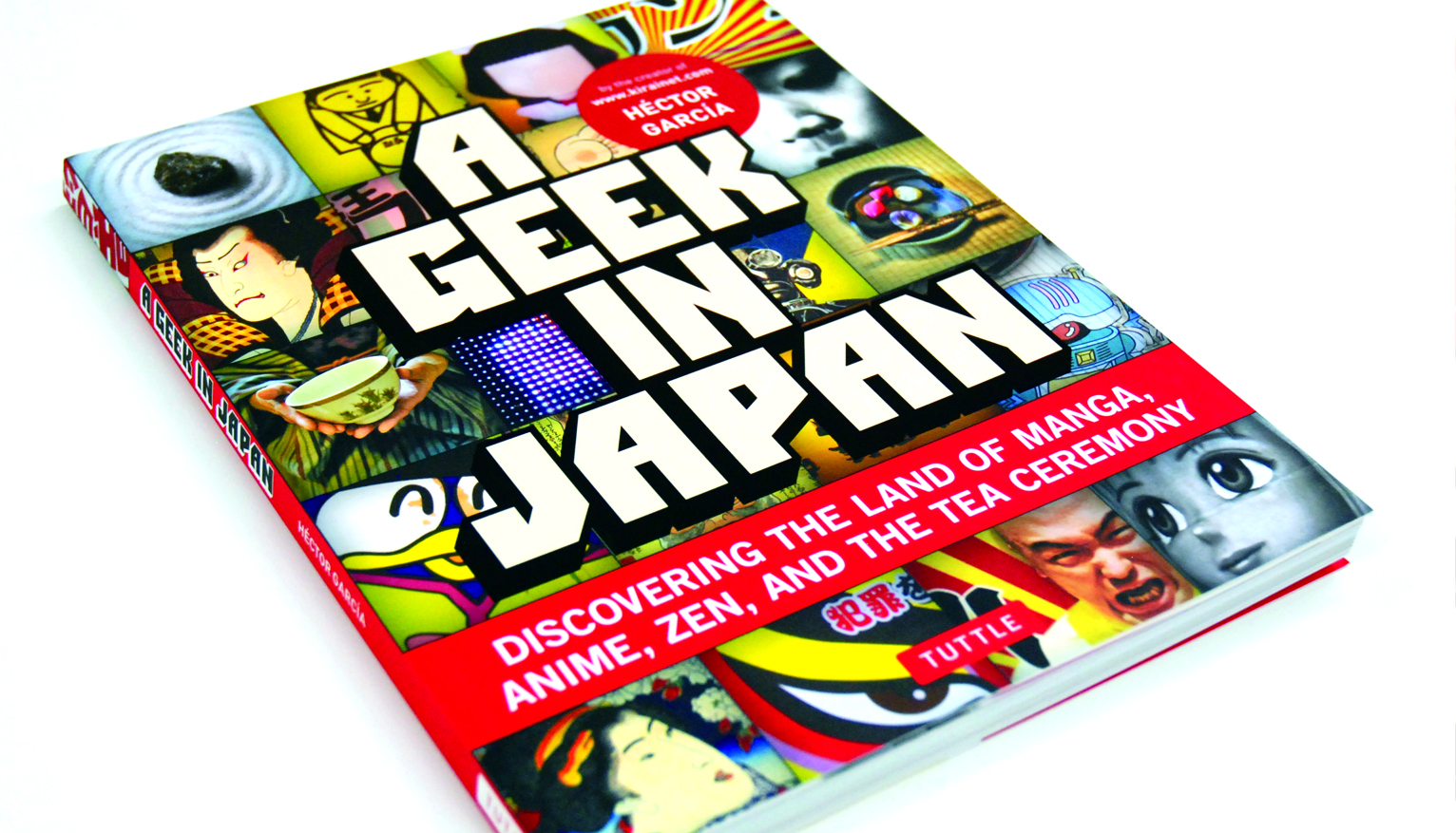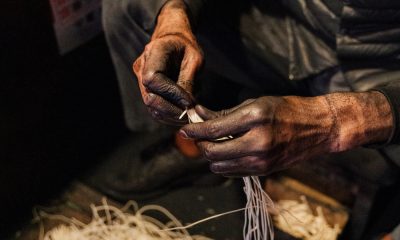Books
Leading by Edo-xample
Life is good, but all too often it’s at the expense of the planet. A new book reveals how we can reverse our gas-guzzling ways by learning from our Edoite forefathers.
With all the ominous buzzwords float-ing around like “global warming” and “carbon footprint”, it is safe to say that those of us who haven’t spent our lives in a cave are aware that we continue to negatively affect the environment with our choices. New Orleans native and Kanazawa Institute of Technol-ogy professor Azby Brown writes Just Enough as a stern warning that the problem is more serious than many of us think, but more importantly to offer a solution by teaching us the ways of Edo period Japan.
So why Edo period you ask? All is explained as Brown reveals how the country entered the Edo period in 1603 cracking under the pressure of having to support a population of twelve million people. It was through savvy technological advances, more economic use of land, and most importantly a seismic change in attitude towards resources and waste that led Japan to conquer its problems, emerging from the brink of collapse to comfortably accommodate a populous of thirty million less than two centuries later.
The message that Brown screams through this book is that we must relearn the methods of the Edoites and become equally sustainable if we are to overcome the similar predicament we face today.“Japanese society almost collapsed due to environmental degradation,” writes Brown. “The fact that it did not is what makes it such an instructive example…This book is about a mentality that pervaded Japanese society then and that can serve as a beacon for our own efforts to achieve sustainability now.”
What follows is a collection of diagram-accompanied fictitious stories through which Brown takes us on a tour of Edoite life, revealing the meth-ods they employed to achieve sustainability. First we pass through a typical rural community where we learn about gravity-reliant irrigation systems and the government’s meticulous attention to the health of the forests(evendown to instituting tree censuses that accounted for almost every single tree). After this, Brown guides us through Edo and teaches us how the majority of families used human waste to fertilize their urban lots and therefore subsidise their living; how everything was re-worked and reused; and how measures like these contributed to making Edo the world’s first sustainable metropolis.
Brown takes time to reinforce the lessons in his tales with more directly-instructive chapters where he lists the steps to becoming a sustainable society in a way that is easy to follow. The result is a book that is thought provoking and commanding in its purpose but written in a way that is humane, vicarious and a pleasure to read.
• Title:Just Enough
• author:Azby Brown
• Publisher:Tuttle Publishing
• iSbn:978-4-8053-1254-4
• Price:¥1,800
• Format:190x228mm 244p paperback
[box]
Five lessons to be learnt from Edo Japan:
Use human waste
Flushing our waste and then cleaning our water consumes energy. Why not kill two birds with one stone and separate waste from the water supply to use as a free, natural fertilizer?!
Recycle everything
Scrap metal, wood, cloth…with a little effort and creativity all materials can be reworked again and again to avoid ending up in landfill.
Sustainable deforestation
Forests support the ecosystem and contribute to the general health of the environment. If we don’t adopt sustainable deforestation methods immediately we might lose them all.
Energy efficient design
Design our homes to take more advantage of natural energy and take less energy to build,repairanddemolish.
Use just enough
Use only what you need: decadence is detrimental
[/box]







